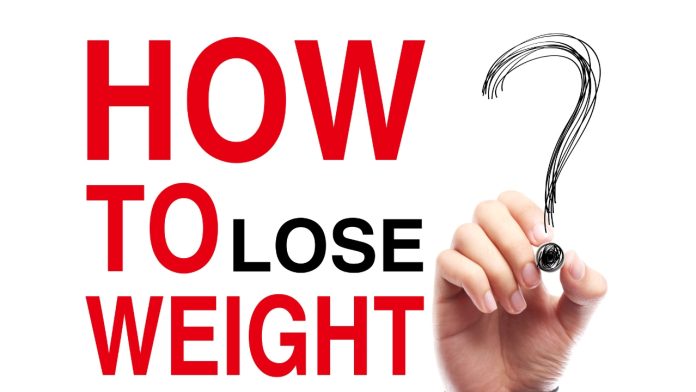Losing weight is a common goal for many individuals, and while it’s important to approach it with a focus on overall health and well-being, there are ways to kickstart your weight loss journey for faster results. In this blog post, we’ll explore some practical tips and strategies to help you shed those extra pounds quickly. If you’re wondering how to achieve rapid weight loss in a healthy manner, experts recommend incorporating a combination of a balanced diet, regular exercise, and mindful lifestyle choices.
1. Set Realistic Goals:
Before you start trying to lose weight, it’s important to set goals that you can actually reach. While it might be tempting to lose weight quickly, it’s better to focus on being healthy rather than losing weight fast. A good rule of thumb is to aim for a steady and reasonable pace, like losing 1-2 pounds per week. This helps make sure that you’re losing fat and not muscle.
Losing weight too quickly by extreme methods can harm your body, causing you to lose muscle instead of fat. So, it’s better to take it slow and steady. Trying to lose about 1-2 pounds every week is a healthy approach. This not only helps in keeping your muscles intact but also increases your chances of keeping the weight off in the long run.

Setting realistic goals is not just about your body but it’s also about your mind and emotions. When you set achievable goals, you’re less likely to feel frustrated or disappointed. This positive mindset is essential for staying committed to a healthier lifestyle for the long haul.
Taking a gradual approach is beneficial for your body to adjust comfortably to changes in your diet and lifestyle. It allows you to make sustainable adjustments without feeling overwhelmed. By focusing on a manageable pace, you can create lasting habits and make positive changes in your eating and exercise habits.
2. Optimize Your Diet:
For a successful journey to lose weight, focus on eating healthy and balanced meals. Include whole and nutrient-packed foods like fruits, vegetables, lean proteins, and whole grains in your diet. A smart approach is to eat fewer calories than your body needs to maintain its current weight. But be careful not to cut calories too much, as extreme changes can harm your metabolism.
Watch your portion sizes to avoid overeating. Eating smaller, well-balanced portions allows you to enjoy a variety of foods while still working towards your weight loss goals.

Another important step is to limit processed foods, sugary drinks, and high-calorie snacks. These items often have lots of calories but lack the essential nutrients your body needs. By cutting back on them, you make room for healthier foods that keep you feeling full and support your overall health.
3. Stay Hydrated:
Drinking enough water is super important for your health and can really help you lose weight. Sometimes, when you feel hungry, your body might actually be thirsty. By making sure you drink at least eight glasses, which is about 64 ounces, of water every day, you can stay hydrated and support your body in losing weight.
When you don’t drink enough water, your body can get mixed up and send signals that make you think you’re hungry when you’re really just thirsty. This mix-up can lead to eating more calories than you need, making it harder to lose weight. By drinking enough water, you can better understand what your body really needs – whether it’s food or just a good drink of water.

Benefits of drinking water extend beyond hydration. Drinking water is also great for your metabolism, which is like your body’s engine that helps burn calories. When you stay hydrated, your body can work more efficiently, breaking down food and turning it into energy. If you don’t drink enough water, your metabolism might slow down, making it tougher to lose weight.
An easy goal is to drink those eight glasses of water each day, but keep in mind that everyone’s different. Some people might need a bit more or a bit less depending on things like how active they are. Also, drinking water before meals can help you feel full, so you’re less likely to eat too much.
4. Incorporate Regular Exercise:
Exercise is a crucial part of losing weight and staying healthy. There are two main types: cardio exercises like running or swimming that make your heart beat faster and burn calories, and strength training using weights or resistance bands to build muscle.
Cardio exercises are like fun activities that also help you lose weight, such as running, cycling, or swimming. They get your heart pumping and burn calories by working big muscle groups. Choose activities you enjoy, so it’s not just a workout but something you like doing regularly.

Strength training is about making your muscles stronger by lifting weights or using resistance bands. Unlike cardio, strength training keeps burning calories even after you’ve finished exercising. It helps you build muscle, which is great for losing weight and staying fit.
For a healthy exercise routine, aim for at least 150 minutes of moderate-intensity exercise or 75 minutes of vigorous-intensity exercise each week. This recommendation ensures you get enough physical activity to help with weight loss and keep your overall health in check. It’s like a minimum requirement for staying fit and feeling good.
Exercise isn’t just about losing weight; it also boosts your mood, keeps your heart healthy, and gives you more energy. Combining both cardio and strength training creates a powerful effect, helping you burn fat and build strong, lean muscles.
5. Get Sufficient Sleep:
Getting good sleep is a key player in both losing weight and feeling good overall. When you don’t get enough sleep, it can mess with your hormones, making you hungrier and more likely to crave unhealthy snacks. To support your weight loss journey, it’s important to aim for 7-9 hours of quality sleep every night.
Quality sleep does more than just make you feel rested, it has a direct impact on your body’s hormonal balance. When you’re sleep-deprived, your body produces more ghrelin, a hormone that triggers hunger, and less leptin, a hormone that signals fullness. This hormonal imbalance can lead to increased appetite and cravings, making it harder to stick to a healthy eating plan.

By prioritizing 7-9 hours of sleep each night, you give your body the time it needs to regulate these hormones properly. This balance not only helps control your appetite but also supports your weight loss efforts. It’s like giving your body the right signals to know when it’s genuinely hungry and when it’s full, making it easier to make mindful food choices.
In addition to hormonal balance, quality sleep positively impacts your overall well-being. It enhances mood, cognitive function, and immune system function, all of which contribute to a healthier, happier you. When you’re well-rested, you’re more likely to have the energy and motivation to engage in regular exercise and make better food choices.
Creating a consistent sleep routine and creating a comfortable sleep environment are crucial steps in ensuring you get quality sleep. Turn off electronic devices before bedtime, keep your bedroom dark and quiet, and establish a regular sleep schedule to support your body’s natural sleep-wake cycle.
6. Manage Stress:
When you’re stressed for a long time, it can make losing weight harder. Stress often leads to emotional eating, where you crave comfort foods, usually high in calories. This can throw off your weight loss plans. Stress also messes with your sleep, making it harder for your body to rest and recover.
To make your weight loss journey more effective, it’s important to deal with stress. You can do this by trying activities that help manage stress, like meditation, deep breathing, or yoga. These methods are proven to reduce stress and bring a sense of calm.

Stress can make you eat more and disrupt your sleep, creating a cycle that makes weight loss challenging. By incorporating stress-relief techniques into your daily routine, you can break this cycle. Meditation helps clear your mind, deep breathing calms your nerves, and yoga combines exercise with relaxation.
These practices not only help with stress but also make you more aware of your choices when it comes to food and lifestyle. When you’re less stressed, you’re less likely to turn to unhealthy foods for comfort, and you’ll find it easier to get a good night’s sleep.
Conclusion:
Losing weight quickly needs a well-rounded plan involving a good diet, regular exercise, staying hydrated, and forming healthy habits. While fast results can be exciting, it’s important to choose habits that you can keep up with for a long time. Before making big changes to your diet or exercise, talk to a healthcare professional for guidance. Everyone’s body is different, so it’s crucial to find an approach that suits you to reach and maintain your weight loss goals. The key is to create habits that work well in the short term and keep you healthy for the long run.


